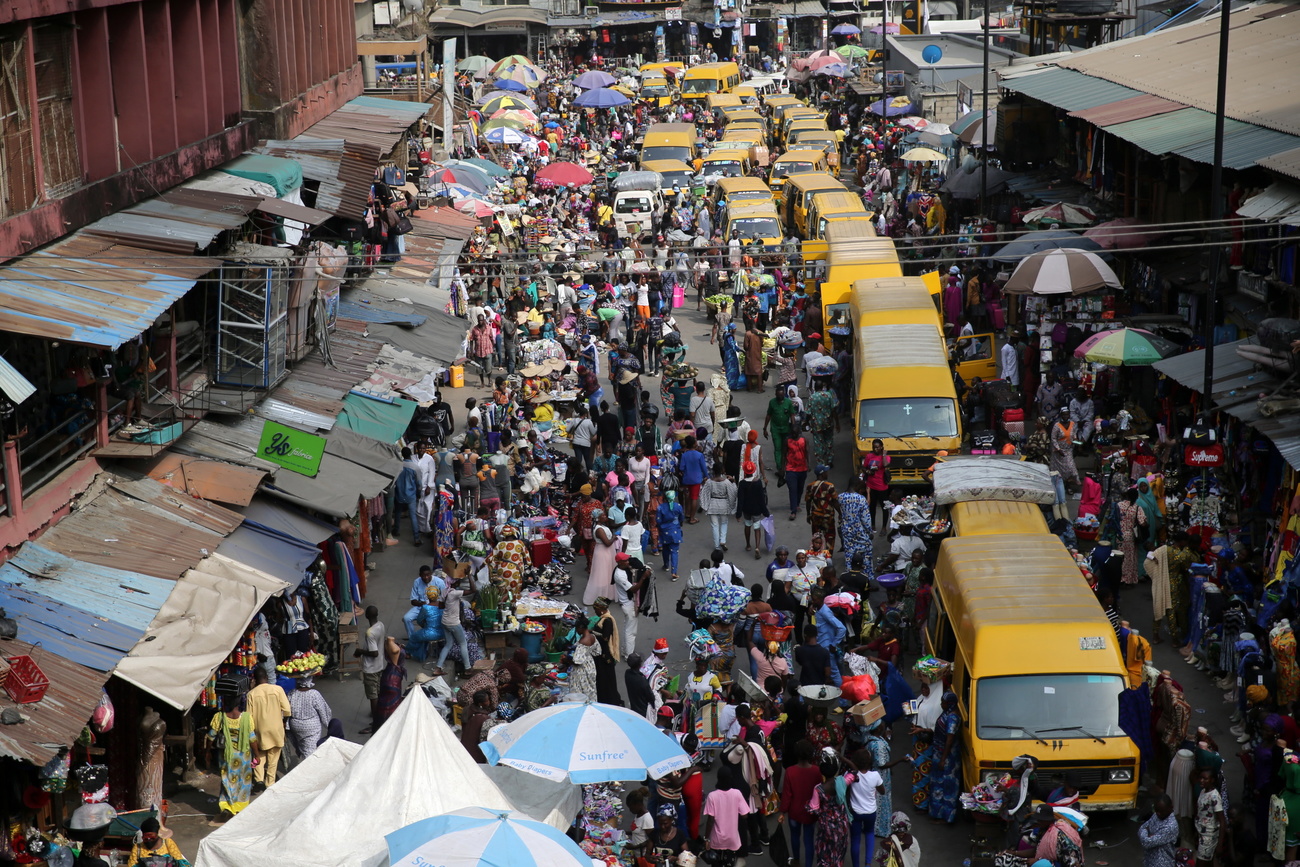
Mapping Africa’s disease transmission hotspots

Swiss researchers have created a risk map of sub-Saharan Africa, based on population density and infrastructure, which they hope can help anticipate the spread of disease outbreaks.
The research by the federal technology institute ETH Zurich and the Swiss Tropical and Public Health Institute (TPH) examined 34 countries in sub-Saharan Africa, as well as the responses of 273,000 households, to determine which regions were better able to enforce social distancing rules to dampen the spread of diseases like Covid-19.
The results – publishedExternal link this week in the Nature Communications journal – show “huge differences” both across countries and within countries, ETH Zurich said.
Basing their risk map on factors like how many people share a room, how many are dependent on public transport, and the availability of mobile phones, they found that countries in West Africa like Nigeria are much less capable of using social distancing rules to stop diseases than places like Namibia and South Africa (see the full map hereExternal link).
They also found that their “physical distancing index” – the infrastructure needed to maintain distancing rules – was not necessarily correlated to economic factors like GDP. Different countries had different drivers that meant people were unable to stay apart: for example, the lack of private transport options in Ethiopia, or the high ratio of people sharing the same access to a water supply in Rwanda.
Less useful in Switzerland
The researchers hope that the data could help governments in sub-Saharan Africa – where inoculation rates against Covid are low – to develop targeted projects to improve private infrastructure, thus giving people more options to protect themselves, with or without a vaccine.
They also hope it might be useful in other regions, for example in densely populated places in Asia or South America. For countries like Switzerland, however, the information is less crucial, since the private infrastructure needed to tackle a pandemic like Covid already exists. Here, “if people don’t comply with distancing rules, there are other reasons”, said ETH researcher Kenneth Harttgen.

More
Coronavirus: the situation in Switzerland

In compliance with the JTI standards
More: SWI swissinfo.ch certified by the Journalism Trust Initiative
















![The four-metre-long painting "Sonntag der Bergbauern" [Sunday of the Mountain Farmers, 1923-24/26] had to be removed by a crane from the German Chancellery in Berlin for the exhibition in Bern.](https://www.swissinfo.ch/content/wp-content/uploads/sites/13/2025/12/01_Pressebild_KirchnerxKirchner.jpg?ver=cb688ed5)














You can find an overview of ongoing debates with our journalists here . Please join us!
If you want to start a conversation about a topic raised in this article or want to report factual errors, email us at english@swissinfo.ch.